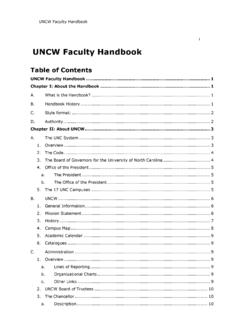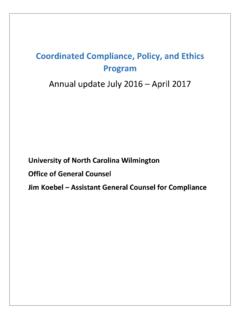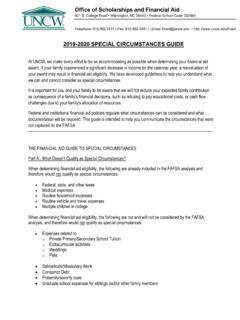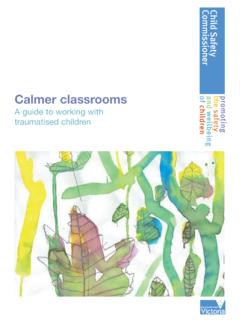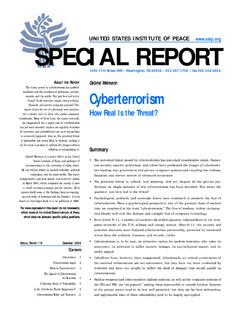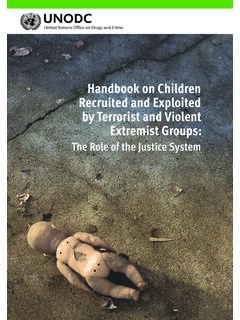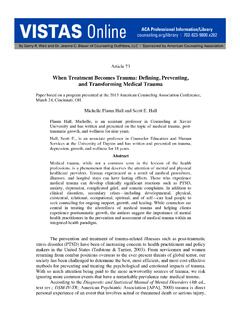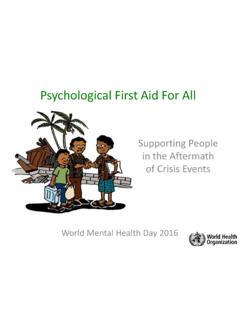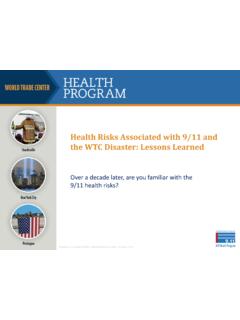Transcription of The Road to Resilience – American Psychological Association
1 The Road to Resilience American Psychological Association How do people deal with difficult events that change their lives? The death of a loved one, loss of a job, serious illness, terrorist attacks and other traumatic events: these are all examples of very challenging life experiences. Many people react to such circumstances with a flood of strong emotions and a sense of uncertainty. Yet people generally adapt well over time to life-changing situations and stressful conditions. What enables them to do so?
2 It involves Resilience , an ongoing process that requires time and effort and engages people in taking a number of steps. This brochure is intended to help readers with taking their own road to Resilience . The information within describes Resilience and some factors that affect how people deal with hardship. Much of the brochure focuses on developing and using a personal strategy for enhancing Resilience . What is Resilience ? Resilience is the process of adapting well in the face of adversity, trauma, tragedy, threats or significant sources of stress such as family and relationship problems, serious health problems or workplace and financial stressors.
3 It means "bouncing back" from difficult experiences. Research has shown that Resilience is ordinary, not extraordinary. People commonly demonstrate Resilience . One example is the response of many Americans to the September 11, 2001 terrorist attacks and individuals' efforts to rebuild their lives. Being resilient does not mean that a person doesn't experience difficulty or distress. Emotional pain and sadness are common in people who have suffered major adversity or trauma in their lives. In fact, the road to Resilience is likely to involve considerable emotional distress.
4 Resilience is not a trait that people either have or do not have. It involves behaviors, thoughts and actions that can be learned and developed in anyone. Factors in Resilience A combination of factors contributes to Resilience . Many studies show that the primary factor in Resilience is having caring and supportive relationships within and outside the family. Relationships that create love and trust, provide role models and offer encouragement and reassurance help bolster a person's Resilience .
5 Several additional factors are associated with Resilience , including: The capacity to make realistic plans and take steps to carry them out. A positive view of yourself and confidence in your strengths and abilities. Skills in communication and problem solving. The capacity to manage strong feelings and impulses. All of these are factors that people can develop in themselves. Strategies for Building Resilience Developing Resilience is a personal journey. People do not all react the same to traumatic and stressful life events.
6 An approach to building Resilience that works for one person might not work for another. People use varying strategies. Some variation may reflect cultural differences. A person's culture might have an impact on how he or she communicates feelings and deals with adversity for example, whether and how a person connects with significant others, including extended family members and community resources. With growing cultural diversity, the public has greater access to a number of different approaches to building Resilience .
7 Some or many of the ways to build Resilience in the following pages may be appropriate to consider in developing your personal strategy. 10 Ways to Build Resilience Make connections. Good relationships with close family members, friends or others are important. Accepting help and support from those who care about you and will listen to you strengthens Resilience . Some people find that being active in civic groups, faith-based organizations, or other local groups provides social support and can help with reclaiming hope.
8 Assisting others in their time of need also can benefit the helper. Avoid seeing crises as insurmountable problems. You can't change the fact that highly stressful events happen, but you can change how you interpret and respond to these events. Try looking beyond the present to how future circumstances may be a little better. Note any subtle ways in which you might already feel somewhat better as you deal with difficult situations. Accept that change is a part of living. Certain goals may no longer be attainable as a result of adverse situations.
9 Accepting circumstances that cannot be changed can help you focus on circumstances that you can alter. Move toward your goals. Develop some realistic goals. Do something regularly even if it seems like a small accomplishment that enables you to move toward your goals. Instead of focusing on tasks that seem unachievable, ask yourself, "What's one thing I know I can accomplish today that helps me move in the direction I want to go?" Take decisive actions. Act on adverse situations as much as you can.
10 Take decisive actions, rather than detaching completely from problems and stresses and wishing they would just go away. Look for opportunities for self-discovery. People often learn something about themselves and may find that they have grown in some respect as a result of their struggle with loss. Many people who have experienced tragedies and hardship have reported better relationships, greater sense of strength even while feeling vulnerable, increased sense of self-worth, a more developed spirituality and heightened appreciation for life.



